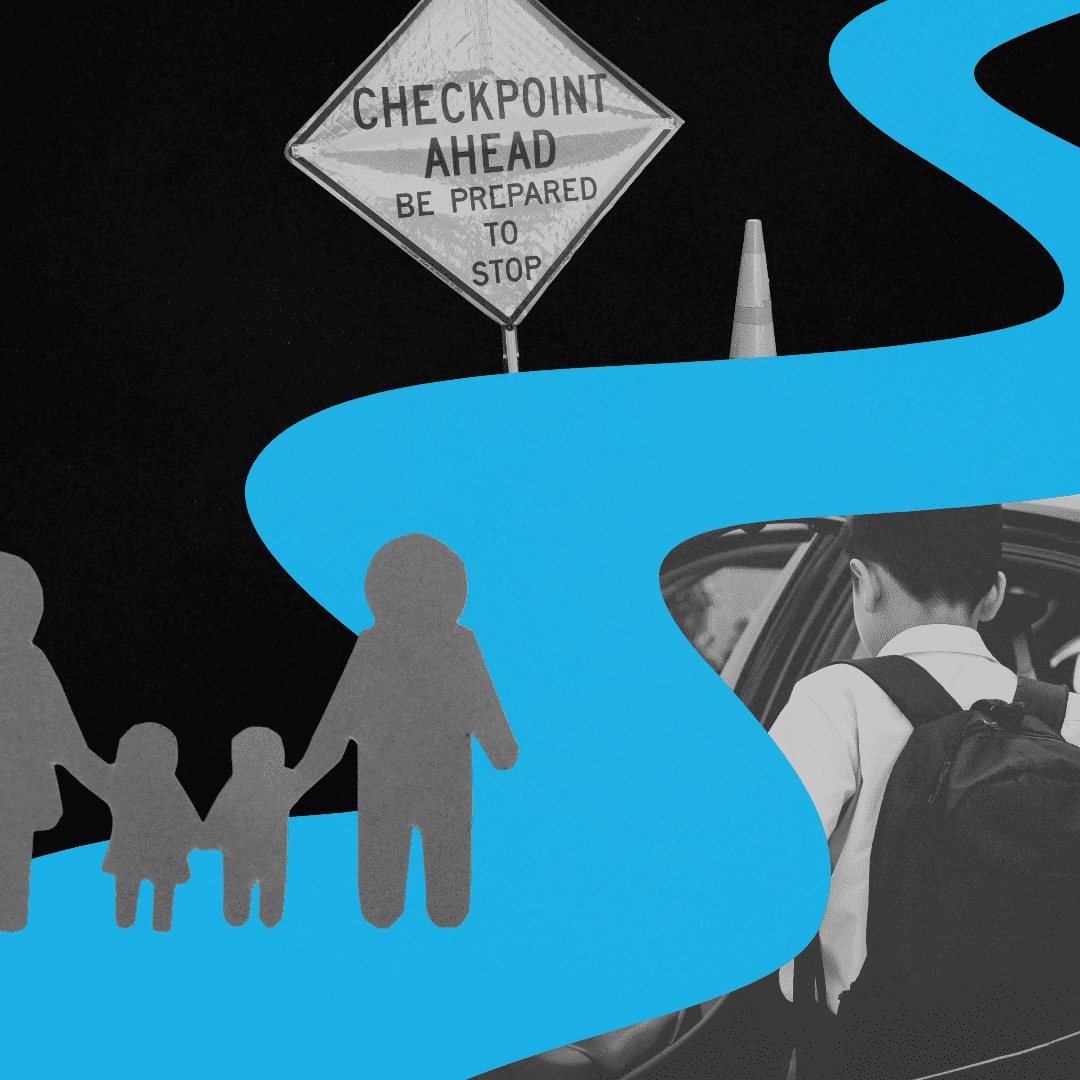Can a DUI affect child custody? Yes.
Of course, being charged with driving under the influence (DUI) is a life-changing event for anyone… meaning a lot of lives are changing: According to the CDC, nearly one million DUI arrests are made in the United States each year.
But for the one million drivers who are also parents with custody agreements, a DUI can affect far more than just fines or a suspended license.
Parents navigating a custody dispute after a DUI often have to answer difficult questions regarding their own judgment, responsibility, and ability to provide for their child’s safety. Understanding how courts view custody cases involving one or more DUIs can help parents navigate this difficult time with more clarity.
How a DUI can affect custody, overall
First, I want to mention that DUI is not strictly limited to alcohol use.
Driving under the influence, as defined in state statutes, generally means operating a motorized vehicle under the influence of any intoxicating substance, including alcohol, illegal (and sometimes prescription) drugs and, in most states, marijuana (as always, it is important to stay updated and understand your state’s DUI laws).
Now, in most cases, a single DUI does not automatically cause a parent to lose custody. Courts will look at:
- The circumstances surrounding the incident
- The parent’s driving record
- Any evidence of rehabilitation
- Whether the child was directly impacted by the DUI.
Remember: The court’s efforts are typically aimed at ensuring the family unit stays together while providing parents with adequate support to avoid future court involvement.
As a family law attorney, I have encountered two instances in which parents defending against first-time DUI charges did not lose visitation time with their child at all. However, each of these parents voluntarily enrolled themselves in parenting classes and rehabilitative programming, and completed at least some of the program before their first court appearance. Taking these proactive steps can go a long way in showing the court you are serious about maintaining sobriety.
In turn, judges tend to give leniency in recognizing that a one-time mistake does not define an individual. But judges are under no obligation to extend leniency when the law allows for harsher consequences, or when the DUI directly impacts the child’s safety, security, and well-being.
When a parent receives multiple DUIs – how does this affect child custody?
Repeated DUI offenses can significantly alter the court’s view of a parent’s reliability and capacity to make safe choices. Multiple convictions may indicate an ongoing struggle with alcohol use, even if each incident occurred without a child present.
Unsurprisingly, those categorized as “heavy drinkers” or “heavy binge drinkers” are far more likely to have DUI convictions on their record than “social drinkers.” In cases involving multiple DUI offenses, the court can impose heightened restrictions or conditions on custody or visitation like:
- Supervised parenting time
- Mandated participation in substance abuse counseling
- The use of alcohol monitoring technology.
And while a single DUI may not automatically lead to a loss of or decrease in custody, multiple DUI offenses could result in a temporary reduction in or loss of visitation rights. Even where losing custodial rights is not directly at issue, multiple DUI offenses can result in a parent’s driver’s license being suspended or revoked, which could impact their ability to show up for visitation.
It is safe to say that, for each DUI, a proportional loss in parenting time may be expected. From a legal perspective, these measures are not aimed at infringing on the parent’s freedom or privacy, but are implemented with the goals of protecting the child and supporting the parent’s path to recovery.
DUI with a child in the vehicle
A DUI charge becomes far more serious when a child is in the car at the time of the incident (by child, I mean anyone under 18 years old).
In most states, driving under the influence with a minor passenger (whether an infant or a teenager) is considered child endangerment, a separate and often felony-level offense. In these situations, law enforcement officers are typically required to notify Child Protective Services or the state’s equivalent agency.
This can trigger immediate legal consequences such as mandatory jail time (even for first time offenders), a child welfare investigation, increased fines, automatic license suspension, and mandatory DUI education (DUI.org has a comprehensive overview of penalties associated with DUIs and child endangerment). All things considered, a DUI with a child in the car can easily form a persuasive basis for reducing a parent’s custodial rights.
Judges tend to view this scenario as a critical breach of parental responsibility and a direct risk to the child’s safety. Even for parents who otherwise have strong custody claims, a DUI involving a child in the vehicle can result in temporary loss of custody or long-term restrictions until safety and sobriety are demonstrated.
Not only can a parent charged with DUI and child endangerment expect a proceeding in criminal court, but the likelihood of family court getting involved is almost certain. So, while a DUI with one’s child in the vehicle may not serve as grounds to automatically terminate custody, that parent can expect a long road ahead with many checkpoints for the court to ensure sobriety and the child’s safety is being prioritized.
Moving forward with custody after receiving a DUI
A DUI does not mean a parent’s right to custody will disappear overnight, but it does place that right under scrutiny. The key to moving forward is demonstrating responsibility, transparency, and commitment to both sobriety and the well-being of any children involved.
For parents facing DUI charges, it is crucial to seek both legal guidance and support resources. Working privately to show change, be it through recovery programs, monitoring tools like BACtrack View, or better communication, can make a meaningful difference in how the court views one’s ability to parent safely.
And sometimes – as terrible as it may be – a DUI can be a needed wake-up call to the real risks involved with alcohol or substance abuse, motivating parents to make long-term changes that ultimately benefit themselves and their children.

